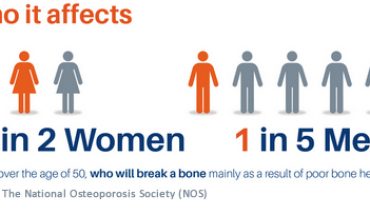Healthy Diet Index supports diet quality assessment and dietary counselling in healthcare: The Healthy Diet Index developed by Finnish nutrition experts facilitates the assessment of diet quality. Its effectiveness was demonstrated in a recently published study.
Dietary counselling plays a crucial role in the prevention and treatment of chronic lifestyle diseases. In healthcare settings, dietary counselling is often provided by professionals without specific training in nutrition, and there is a demand for tools for reliable and easy assessment of diet quality. One such tool is the Healthy Diet Index developed in the recently completed Stop Diabetes (StopDia) project.
The Healthy Diet Index describes the quality of the diet in relation to nutrition recommendations, and to a diet that prevents type 2 diabetes. The scale of the index is from 0 to 100. In addition, the Healthy Diet Index also gives a score to different domains of the diet, including meal pattern, grains, fruit and vegetables, fats, fish and meat, dairy and snacks and treats. The aim was to create scoring method that is sensitive even to minor changes in eating habits, which facilitates the monitoring of changes and may give additional motivation to implement dietary changes.
The Healthy Diet Index was created in collaboration between nutrition experts from the Finnish Institute for Health and Welfare, the University of Eastern Finland, Tampere University Hospital and Pirkanmaa Hospital District. The Healthy Diet Index is based on a validated food intake questionnaire previously developed and used as part of Finland’s national programme for the prevention and care of diabetes (DEHKO). However, it is difficult to perceive the whole diet on the basis of individual questions. Dietary counselling is easier and more concrete for the client when the diet is assessed as a whole instead of individual nutrients, and when food-specific advice is given.
The recently published study compared the Healthy Diet Index to the nutrient intake calculated from food diaries (n = 77). The researchers also examined the association of the Healthy Diet Index score with the risk factors of chronic diseases in 3,100 people who had an elevated risk of developing type 2 diabetes, and who participated in the StopDia study. The Healthy Diet Index score was found to associate with the intake of energy nutrients, fibre, and several vitamins and minerals. In the StopDia dataset, a higher Healthy Diet Index score was associated with a lower body mass index, waist circumference, and blood glucose and triglyceride levels in both men and women. The study was published in International Journal of Environmental Research and Public Health.
“The results provide support for the importance of dietary changes in the prevention of chronic diseases such as type 2 diabetes. Even minor improvements to eating habits are important for health, when they are repeated daily. The impact on health is visible even if a person’s weight does not go down,” says Early Stage Researcher Kirsikka Aittola, who is writing a PhD thesis on the StopDia Study at the University of Eastern Finland.
Scoring methods measuring diet quality have been developed also in the past, including the DASH index for the prevention of high blood pressure, but these often require completing a time-consuming food frequency questionnaire.
“The new Healthy Diet Index is fairly similar to previous scoring methods, but it also assesses the meal pattern, which has often been highlighted as a stumbling block in weight management when working with patients. Importantly, the Healthy Diet Index has been created on the basis of the nutrition recommendations,” Professor of Nutrition Therapy Ursula Schwab from the University of Eastern Finland says.
The food intake questionnaire is easy and quick to fill out but computing the Healthy Diet Index requires automation.
“An automated and clearly visualised Healthy Diet Index would be an excellent tool for healthcare professionals to support dietary counselling. It would therefore be important to integrate it into electronic healthcare services and different digital care paths. It could also serve as a self-monitoring tool for patients, and it could include clear tips on how to make dietary changes based on one’s own responses,” Aittola says.
Research article:
Lindström, J.; Aittola, K.; Pölönen, A.; Hemiö, K.; Ahonen, K.; Karhunen, L.; Männikkö, R.; Siljamäki-Ojansuu, U.; Tilles-Tirkkonen, T.; Virtanen, E.; Pihlajamäki, J.; Schwab, U. Formation and Validation of the Healthy Diet Index (HDI) for Evaluation of Diet Quality in Healthcare. Int. J. Environ. Res. Public Health 2021, 18, 2362. https://doi.org/10.3390/ijerph18052362 Link: https://www.mdpi.com/1660-4601/18/5/2362
The food intake questionnaire and the scoring of the Healthy Diet Index are available at: https://sites.uef.fi/stopdia/material-bank/?lang=en
- Gut microbiome could delay onset of type 1 diabetes - 3rd April 2025
- The da Vinci 5 Robot Is Set To Transform Bariatric Care: - 31st March 2025
- Beyond money: the hidden drivers fuelling child food insecurity - 31st March 2025






